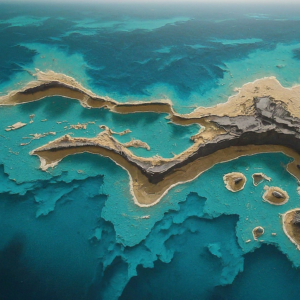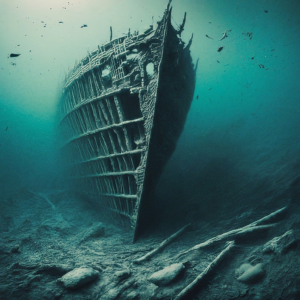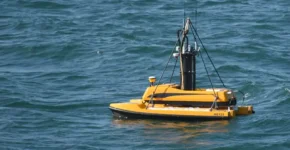The ocean, vast and mysterious, holds secrets within its depths that have captivated humanity for centuries. But for those venturing into its realm, whether for commercial endeavors, scientific exploration, or simply recreational pursuits, understanding the unseen world below is crucial. This is where marine survey solutions come in, acting as your window into the underwater unknown.
But what exactly are marine surveys, and how can they benefit you? If the terminology and technology sound daunting, fear not! This beginner’s guide will shed light on this essential service, equipping you with the knowledge to make informed decisions when navigating the depths.
Diving Deeper: What are Marine Surveys?
Imagine a detailed map, not of land, but of the underwater world. Marine surveys provide precisely that – a comprehensive assessment of the seabed and its features, using specialized tools and techniques. These surveys gather valuable data on:
- Bathymetry: The underwater topography, revealing depths, slopes, and potential hazards.

- Seabed composition: Understanding the type of sediment, from soft mud to rocky outcrops, is crucial for infrastructure stability and environmental impact assessment.
- Marine life: Identifying and mapping sensitive habitats and species ensures responsible development and conservation efforts.

- Man-made objects: Locating shipwrecks, pipelines, and other submerged structures is essential for navigation, infrastructure projects, and historical preservation.

A Toolbox for the Deep: Technologies Unveiling the Unknown
Just like explorers wouldn’t rely solely on a compass, marine surveyors utilize a diverse arsenal of technologies:
- Multibeam echosounders: Imagine sonar on steroids, creating detailed bathymetric maps with astonishing accuracy.
- Side-scan sonars: Scanning the seabed like a sideways fish, these reveal objects, wrecks, and even underwater landscapes.
- Sub-bottom profilers: Peering beneath the surface, these unveil sediment layers and potential hazards buried within.
- Remotely Operated Vehicles (ROVs): These underwater robots equipped with cameras and sensors provide close-up inspection and data collection.
Charting Your Course: Applications Across Industries
From laying pipelines to protecting coral reefs, marine surveys play a vital role in diverse sectors:
- Offshore Energy: Locating wind farm sites, assessing seabed stability for oil and gas platforms, and ensuring responsible environmental practices.
- Ports and Harbors: Maintaining safe navigation channels, optimizing dredging activities, and locating potential obstructions.
- Cable and Pipeline Installation: Identifying optimal routes, avoiding hazards, and ensuring safe and efficient infrastructure development.
- Marine Conservation: Mapping sensitive habitats, monitoring changes in ecosystems, and supporting sustainable resource management.
- Maritime Archaeology: Discovering shipwrecks and submerged cultural heritage, unlocking historical secrets and preserving the past.
The Benefits of Clarity: Why Choose Marine Surveys?
Investing in a marine survey offers numerous advantages:
- Reduced Risks: Identifying potential hazards like shipwrecks and unstable seabed areas minimizes risks to personnel, equipment, and the environment.
- Informed Decisions: Accurate data empowers optimal project planning, construction, and resource management, saving time and money in the long run.
- Environmental Sustainability: Understanding the underwater environment ensures responsible development and minimizes ecological impact.
- Compliance with Regulations: Marine surveys often fulfill regulatory requirements for various maritime activities.
- Peace of Mind: Knowing what lies beneath the surface provides valuable assurance and minimizes uncertainty.
Choosing the Right Partner: Navigating the Survey Landscape
With diverse companies offering marine survey solutions, selecting the right partner is crucial. Consider these factors:
- Experience and Expertise: Opt for a company with proven experience in your specific project needs and geographical area.
- Technology and Resources: Ensure they possess the latest technology and equipment to meet your survey requirements.
- Safety and Regulations: Choose a company with a strong commitment to safety and adherence to relevant regulations.
- Communication and Transparency: Clear communication and transparent cost estimates are essential for a smooth and successful project.
Unlocking the Ocean’s Potential: A World of Opportunity Awaits
By demystifying the world of marine surveys, you’re equipped to make informed decisions and unlock the vast potential of the ocean. Whether you’re venturing into its depths for commercial gain, scientific discovery, or simply exploration, understanding the unseen world below paves the way for a successful and sustainable journey. So, chart your course with confidence, and let marine surveys be your guide to navigating the mysteries of the deep.






